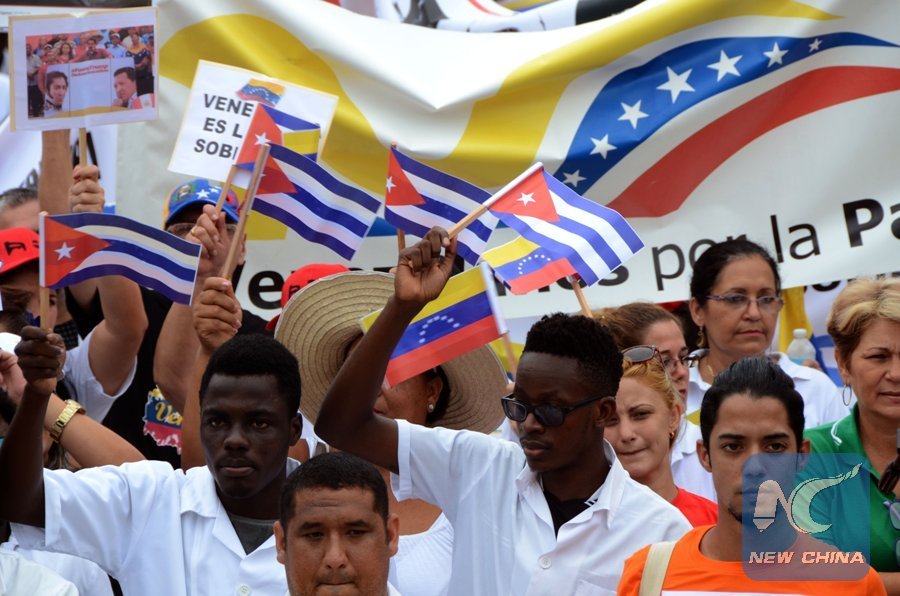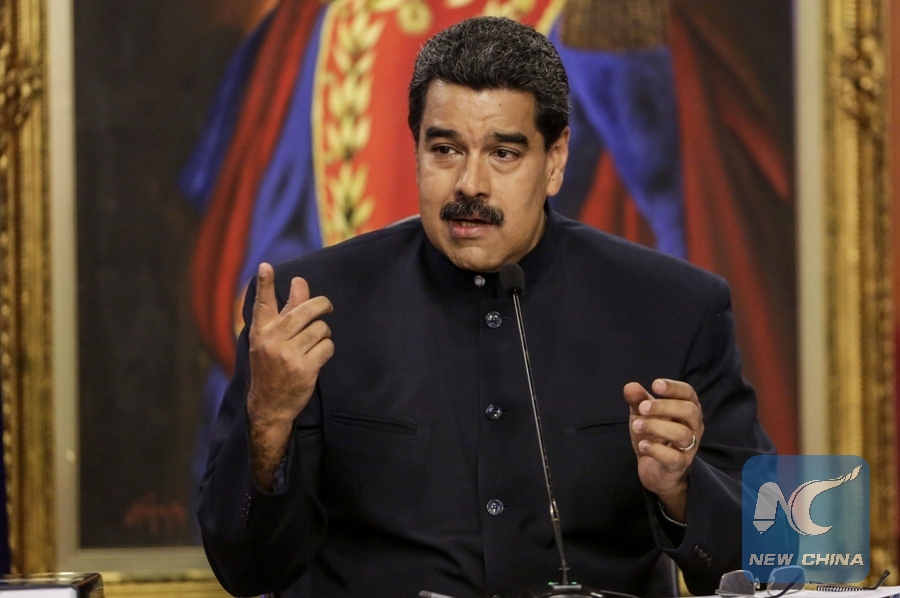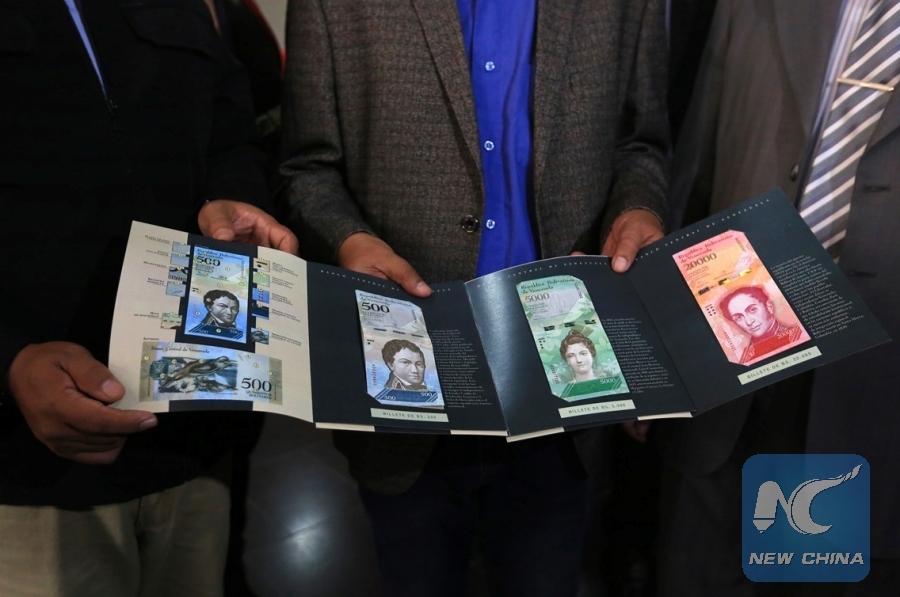
File Photo: People take part in the March in Solidarity with Venezuela in Havana, Cuba, on Aug. 25, 2017. Hundreds of Venezuelans, Cubans and people from other parts of the world marched through a central avenue in Havana to reject recent military threats by U.S. President Donald Trump against Venezuela. (Xinhua/Joaquin Hernandez)
WASHINGTON, March 19 (Xinhua) -- U.S. President Donald Trump on Monday issued an executive order prohibiting U.S. transactions with Venezuela's digital currency, a move to further block the South American country's access to U.S. financial market.
The United States blocked "all transactions related to, provision of financing for, and other dealings in, by a United States person or within the United States, any digital currency, digital coin, or digital token," which have been issued by the Venezuelan government since January 9, said the White House in a statement.
Washington said the new measure has been introduced to counter the latest attempt from the Maduro administration "to circumvent U.S. sanctions."

Venezuelan President Nicolas Maduro speaks during a press conference in Caracas, capital of Venezuela, on Aug. 22, 2017. Maduro announced that his government was taking steps to defend the country against U.S. economic sanctions. (Xinhua/Str)
In late February, Venezuela launched the presale of its own cryptocurrency, a type of digital or virtual currency, backed by its crude oil reserves, as a new financing option against financial sanctions imposed by Washington, which forbid U.S. businesses from lending to the Venezuelan government or the state-run oil and gas company PDVSA.
The U.S. Treasury Department said earlier that the digital currency could violate the sanctions against Venezuela, warning investors who acquire it of legal consequences.
Venezuela had over 3 billion U.S. dollars blocked in the international financial system due to U.S. economic sanctions, Venezuelan Foreign Affairs Minister Jorge Arreaza said in December.

Image provided by the Interior and Justice Ministry of Venezuela shows the bills of the new national currency bracket at the headquarters of the Central Bank of Venezuela, in Caracas, Venezuela, on Jan. 16, 2017. (Xinhua/Oscar Hernandez)
The Venezuelan government has been the subject of increased pressure and sanctions from abroad, including the United States and the European Union, for allegedly electoral fraud, corruption and causing widespread poverty.
Venezuelan President Nicolas Maduro vowed in February that his government was ready to receive international observers to oversee presidential elections on April 22.

